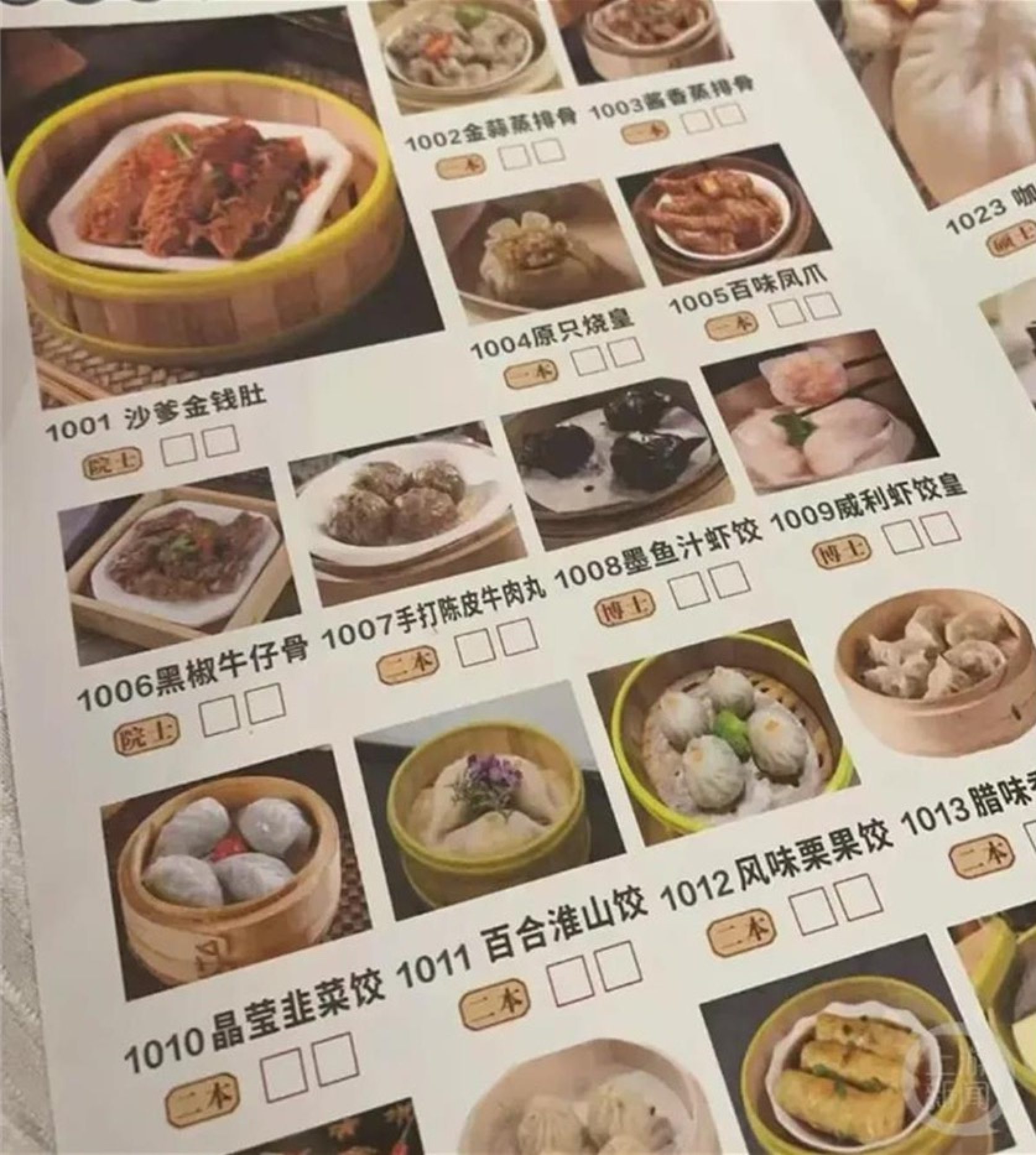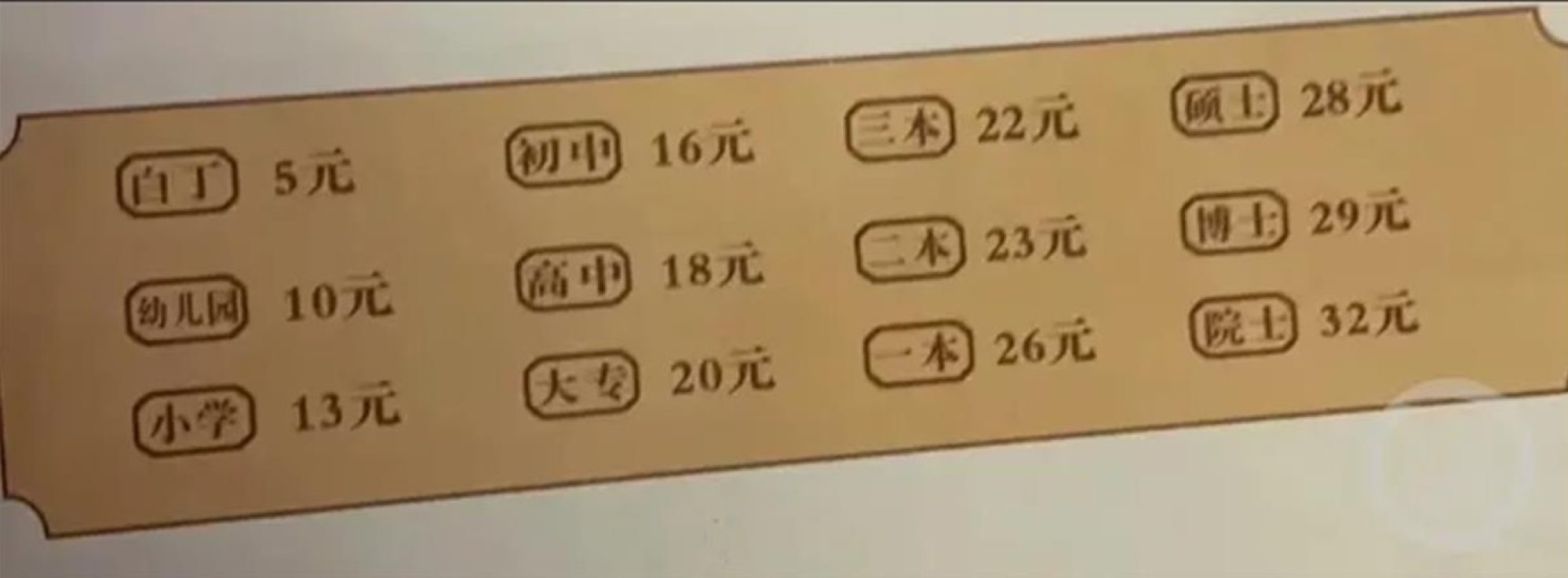
A restaurant in southern China has sparked controversy by marking prices not with traditional numbers, but rather through various academic levels.
The eatery, whose name remains undisclosed, is located in Zhanjiang, Guangdong province, and specialises in Cantonese cuisine, according to the news portal Shangyou News.
On its menu, customers will notice that instead of numerical prices, each dish is labelled with academic levels written in Chinese characters.
Do you have questions about the biggest topics and trends from around the world? Get the answers with SCMP Knowledge, our new platform of curated content with explainers, FAQs, analyses and infographics brought to you by our award-winning team.
This unconventional pricing strategy categorises dishes priced at 10 yuan (US$1.4) as “kindergarten”. Dishes costing 13 yuan are classified as “primary school”, while those at 16 yuan are labelled “junior secondary school”. Dishes priced at 18 yuan are referred to as “senior secondary school”, and those at 20 yuan are termed “tertiary college”.

A “bachelor’s degree from first-tier universities” corresponds to 26 yuan, while the same degree from “second-tier universities” means the dish costs 23 yuan, and from “third-tier universities” at 22 yuan.
“A master’s degree” means 28 yuan, and a “PhD degree” dish costs a high 29 yuan.
At the top of this pricing system is the title of “academician”, which refers to members of the Chinese Academy of Sciences or the Chinese Academy of Engineering. This prestigious honour is considered the pinnacle of scientific achievement in mainland China, with dishes priced at 32 yuan for this title.
The cheapest dish in the restaurant, priced at five yuan, is labelled as “bai ding”, meaning illiterate in Chinese.
For instance, a dish of shrimp dumplings is relatively expensive, sold at the “PhD” rate of 29 yuan.
An employee of the restaurant informed the media that they have employed this unique pricing system for several years.
An official from the municipal market supervision authority described it as merely a “marketing behaviour”, allowing the eatery to set prices as they see fit.

“It’s difficult to determine whether this practice is right or wrong,” the unidentified official was quoted as saying.
The restaurant has generated widespread discussion on mainland Chinese social media, with users divided over its distinctive pricing approach.
“It’s a blatant form of educational discrimination. It will offend many individuals with lower educational achievements,” one person commented on Baidu.
“Does this imply that the more advanced degrees a person holds, the higher their income will be?” questioned another netizen.
However, some others see no issue with the creative pricing system.
“It’s simply an unusual business idea. We should encourage creativity and not be overly sensitive,” remarked another commenter.
More from South China Morning Post:
- China banks use AI in recruitment, drawing mixed views from easing anxiety to trapping candidates
- Man sues China firm after failing 26-day challenge to live in isolation for US$120,000 reward
- China mistress sues woman who refused to divorce husband after receiving US$165,000 from her
- ‘I want to live’: death of China cancer fighter, worked to finance own education, saddens many
- 10 ‘dangerous’ Christmas songs drivers must steer clear of to avoid risky actions
For the latest news from the South China Morning Post download our mobile app. Copyright 2024.









































